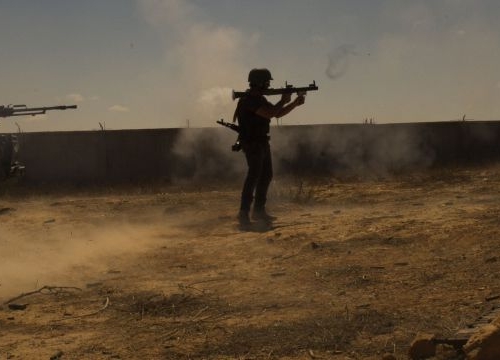New Research Brief Outlines the Methodology, Research Questions and Focus of a Major Research Project on Armed Non-State Actor


ICRC
11 December 2019
The majority of today’s armed conflicts are non-international, opposing states to armed non-state actors (ANSAs) or between ANSAs themselves. In this context, ANSAs’ compliance with international humanitarian law (IHL) and international human rights law (IHRL) is a major challenge in today's armed conflicts.
‘While many violations of IHL and IHRL are committed by ANSAs, how they understand, interpret or can implement their international obligations has not yet been scientifically explored. This is precisely the objective of our research project with Geneva Call that aims at collecting ANSAS’ practice and interpretation of IHL and IHRL norms’ explains Dr Annyssa Bellal, Senior Research Fellow and Strategic Adviser on IHL at the Geneva Academy.
Our new Research Brief From Words to Deeds: A Study of Armed Non-State Actors’ Practice and Interpretations of International Humanitarian and Human Rights Norms summarizes the focus, objectives, methodology and research questions of this project.
‘How and why do ANSAs view, interpret and act upon IHL and IHRL norms, and what can the humanitarian community learn from these practices to enhance the effectiveness of its protection interventions and thus increase ANSAs’ level of compliance with international law are the overarching research questions of our study’ underlines Annyssa Bellal.
Presentation and Discussion at the 33rd International Conference of the Red Cross and Red Crescent
This research brief, along with the research project, its rationale and some of its preliminary findings will be discussed at a side event at the 33rd International Conference of the Red Cross and Red Crescent, co-organized by the Geneva Academy and Geneva Call.








